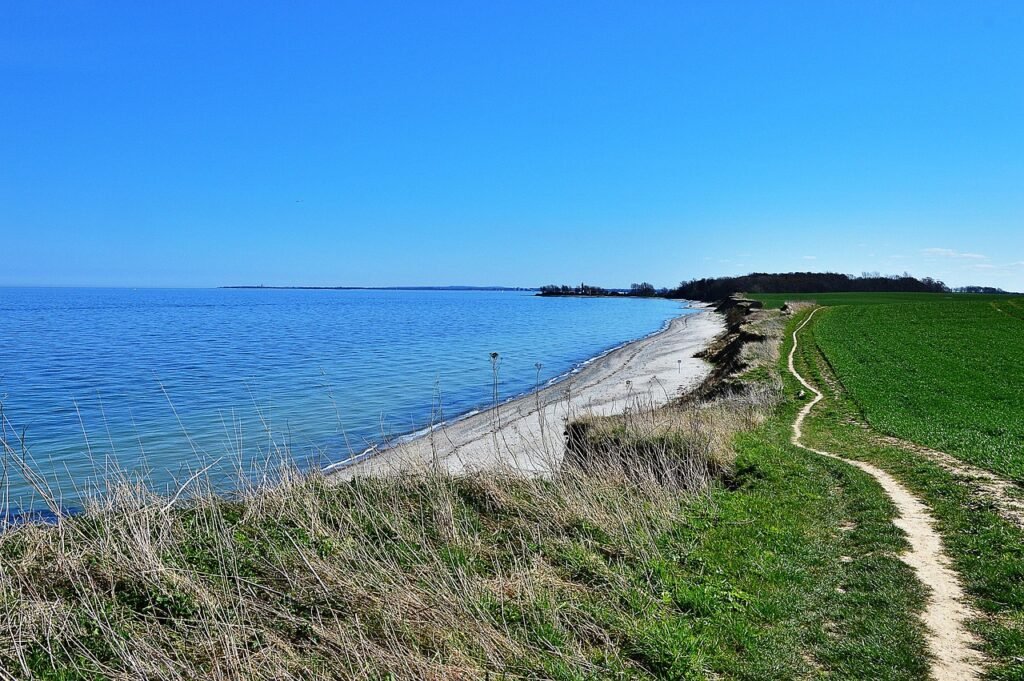Imagine sinking your toes into warm, golden sand, the rhythmic sound of waves crashing gently nearby, and the salty breeze kissing your face. Beaches offer a sanctuary, a place to escape the everyday hustle and reconnect with nature’s tranquility. Whether you’re seeking adventure, relaxation, or simply a breathtaking view, the world’s beaches provide an endless array of experiences. This guide will explore the diverse world of beaches, covering everything from understanding their formation to discovering the best activities and destinations.
Understanding Beaches: More Than Just Sand
Beaches, seemingly simple stretches of sand, are complex and dynamic environments shaped by various natural forces. Understanding their formation and components can enhance your appreciation for these coastal landscapes.
How Beaches Are Formed
The formation of a beach is a fascinating process involving erosion, transportation, and deposition of sediment.
- Erosion: Waves, wind, and rivers break down rocks and other materials into smaller particles.
- Transportation: These particles are carried by water and wind currents.
- Deposition: When the energy of the water or wind decreases, the sediment is deposited along the shoreline, gradually building up to form a beach.
- Example: Rivers play a crucial role by carrying sediment from inland areas to the coast. The Nile River, for instance, has significantly shaped the coastline of Egypt.
Different Types of Beaches
Beaches are not all created equal. They vary significantly based on their composition and geographical location.
- Sandy Beaches: Dominated by sand, these are the most common type and are often composed of quartz, feldspar, or other minerals. Example: Clearwater Beach, Florida.
- Pebble Beaches: Characterized by small, rounded stones. Example: Chesil Beach, UK.
- Shell Beaches: Consisting primarily of broken shells. Example: Shell Beach, Shark Bay, Australia.
- Black Sand Beaches: Formed from volcanic rock. Example: Punalu’u Black Sand Beach, Hawaii.
- Coral Beaches: Made up of eroded coral fragments, often found in tropical regions. Example: Harbour Island, Bahamas (famous for its pink sand, which is actually coral).
Beach Ecosystems and Conservation
Beaches are more than just recreational spaces; they are vital ecosystems supporting a diverse range of plant and animal life.
- Coastal Vegetation: Plants like dune grasses help stabilize the sand and prevent erosion.
- Marine Life: Beaches provide habitats for seabirds, crustaceans, and other marine species.
- Conservation: Protecting beaches from pollution, overdevelopment, and climate change is crucial for preserving their ecological integrity. Organizations like the Surfrider Foundation are dedicated to beach conservation efforts.
- Actionable Takeaway: Always dispose of trash properly and support initiatives that promote responsible beach management.
Beach Activities: Fun in the Sun and Surf
Beaches offer a wide range of activities to suit every interest and fitness level.
Water Sports
From thrilling adventures to leisurely pursuits, the ocean provides endless opportunities for water-based fun.
- Swimming: Always check for lifeguard availability and swim within designated areas.
- Surfing: Popular in areas with consistent waves, like California and Australia. Consider taking lessons for a safe and enjoyable experience.
- Paddleboarding: A great way to explore calm waters and get a full-body workout.
- Kayaking: Explore the coastline and discover hidden coves and beaches.
- Snorkeling and Diving: Discover the underwater world and observe marine life in coral reefs or rocky areas. The Great Barrier Reef in Australia is a world-renowned diving destination.
- Tip: Always wear appropriate safety gear, such as life vests and helmets, when participating in water sports.
Relaxation and Recreation
Sometimes, the best beach activity is simply relaxing and enjoying the surroundings.
- Sunbathing: Apply sunscreen regularly and stay hydrated.
- Beach Volleyball: A fun and social activity for all ages.
- Building Sandcastles: A classic beach activity that sparks creativity.
- Beachcombing: Searching for shells, sea glass, and other treasures washed ashore.
- Picnics: Enjoy a meal with a stunning ocean view.
- Actionable Takeaway: Plan your beach activities based on the weather conditions and your personal preferences.
Beach Safety
Safety should always be a top priority when visiting the beach.
- Sun Protection: Use sunscreen with a high SPF, wear a hat and sunglasses, and seek shade during peak hours.
- Rip Currents: Learn how to identify rip currents and how to escape them. Swim parallel to the shore until you are out of the current.
- Water Quality: Check local advisories for water quality warnings before swimming.
- Marine Life: Be aware of potential hazards such as jellyfish, stingrays, and sharks.
- Emergency Contacts: Know the location of the nearest lifeguard station and emergency contact numbers.
- Example: In Australia, the “SLSGB” (Surf Life Saving Great Britain) provides valuable information on beach safety and water conditions.
Top Beach Destinations Around the World
The world is filled with stunning beaches, each offering a unique experience. Here are a few examples to inspire your next beach vacation.
Tropical Paradises
These destinations are known for their warm waters, white sand beaches, and lush vegetation.
- Maldives: An archipelago of islands in the Indian Ocean, famous for its luxury resorts and crystal-clear waters. Offers incredible snorkeling and diving opportunities.
- Bora Bora, French Polynesia: Known for its iconic overwater bungalows and vibrant coral reefs.
- Bali, Indonesia: A diverse island with stunning beaches, rice paddies, and cultural attractions. Kuta Beach is famous for surfing.
- Actionable Takeaway: Research the best time to visit these destinations to avoid the rainy season or peak tourist crowds.
Coastal Gems
These destinations offer a mix of natural beauty, cultural attractions, and outdoor activities.
- The Algarve, Portugal: Known for its dramatic cliffs, golden sand beaches, and charming towns. Praia da Marinha is considered one of the most beautiful beaches in the world.
- Cape Town, South Africa: Offers stunning beaches with views of Table Mountain and opportunities for wildlife viewing. Boulders Beach is famous for its penguin colony.
- Amalfi Coast, Italy: A picturesque coastline with colorful villages, dramatic cliffs, and stunning beaches. Positano is a popular beach town.
- Actionable Takeaway: Consider combining your beach vacation with cultural experiences and exploring the local cuisine.
Unique Beach Experiences
For those seeking something different, these destinations offer unique beach experiences.
- Iceland’s Black Sand Beaches: Reynisfjara Beach is famous for its black sand, basalt columns, and dramatic cliffs.
- Pink Sands Beach, Bahamas: Harbour Island offers a unique experience with its pink sand, created from coral fragments.
- Glass Beach, California: A beach covered in sea glass, created from years of discarded glass being smoothed by the waves.
- Actionable Takeaway: Explore off-the-beaten-path beaches for a more unique and secluded experience.
Sustainable Beach Tourism: Protecting Our Coasts
Responsible tourism is essential for preserving the beauty and integrity of beaches for future generations.
Reducing Your Environmental Impact
Simple actions can make a big difference in minimizing your impact on the environment.
- Use Reef-Safe Sunscreen: Avoid sunscreens containing chemicals that can harm coral reefs.
- Bring Your Own Reusable Water Bottle and Bags: Reduce plastic waste by bringing your own reusable items.
- Pack Out All Trash: Leave the beach cleaner than you found it by packing out all your trash.
- Respect Wildlife: Observe marine life from a distance and avoid disturbing their habitats.
- Support Local Businesses: Choose local businesses that are committed to sustainable practices.
- Actionable Takeaway: Before your trip, research eco-friendly accommodations and tour operators.
Supporting Beach Conservation Efforts
Contribute to organizations that are working to protect beaches and marine environments.
- Donate to Conservation Organizations: Support organizations like the Surfrider Foundation or the Ocean Conservancy.
- Participate in Beach Cleanups: Volunteer your time to help clean up beaches and remove litter.
- Educate Others: Share your knowledge about sustainable tourism and encourage others to be responsible travelers.
- Example: The “Take 3 for the Sea” initiative encourages people to pick up three pieces of trash whenever they visit the beach.
Conclusion
Beaches offer a diverse range of experiences, from thrilling water sports to tranquil relaxation. Understanding their formation, ecosystems, and the importance of sustainable tourism can enhance your appreciation for these coastal landscapes. By following the tips and recommendations in this guide, you can plan a memorable and responsible beach vacation that benefits both you and the environment. So, pack your bags, grab your sunscreen, and get ready to explore the world’s stunning beaches!

